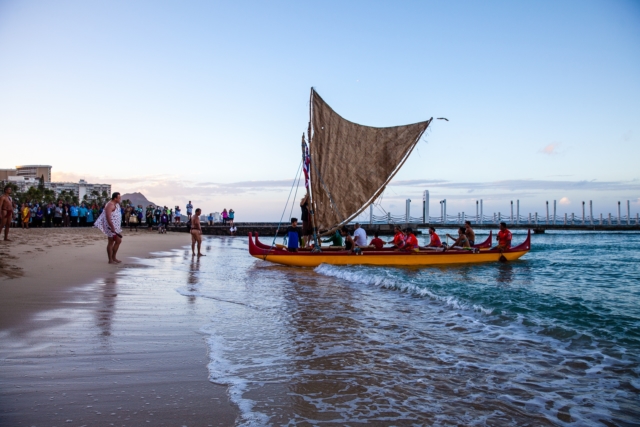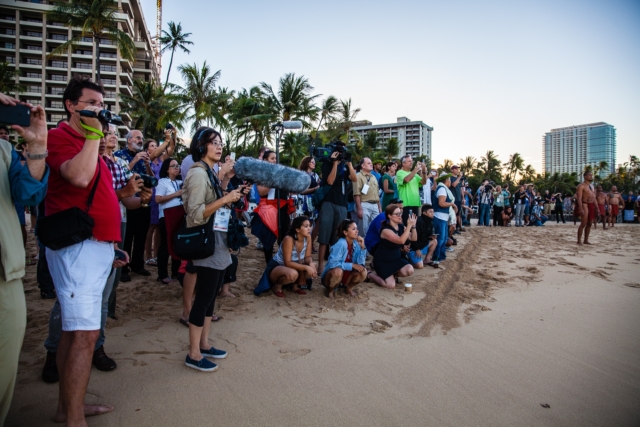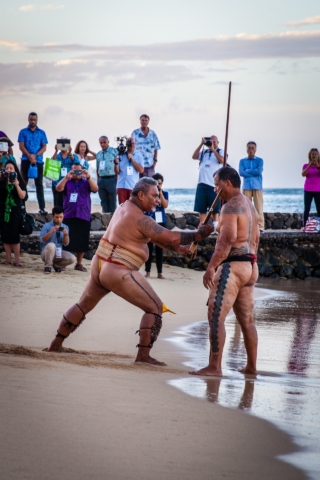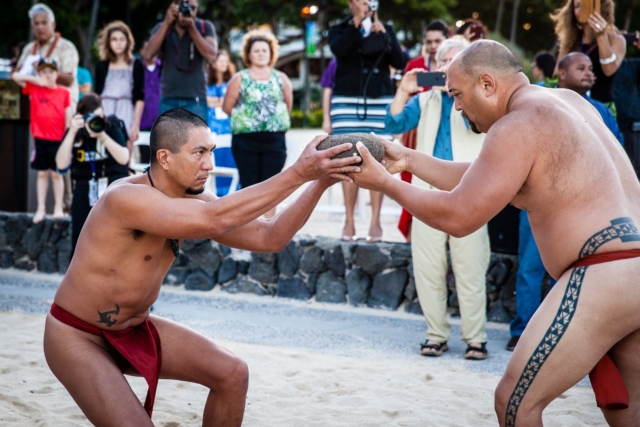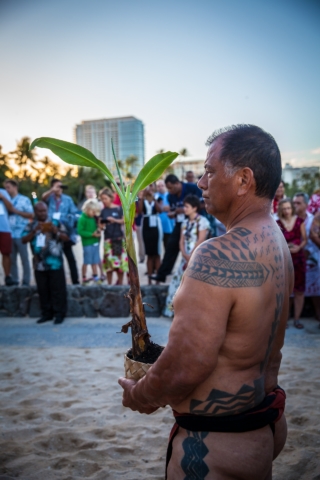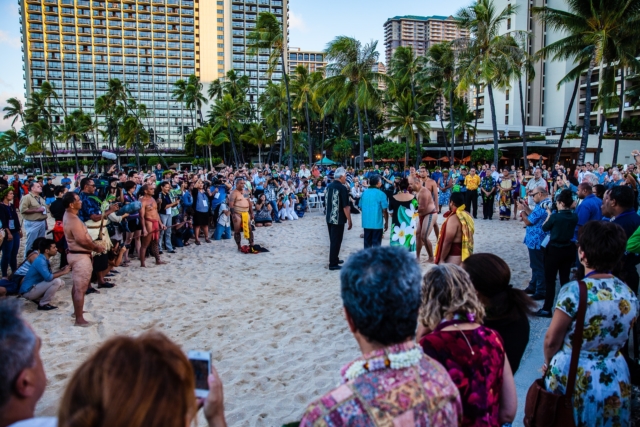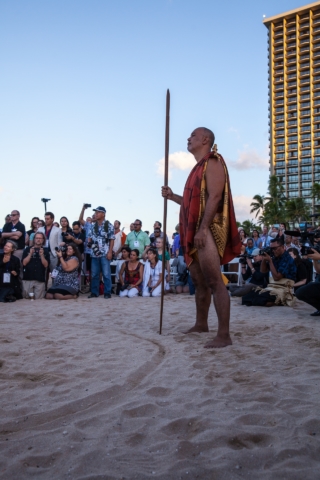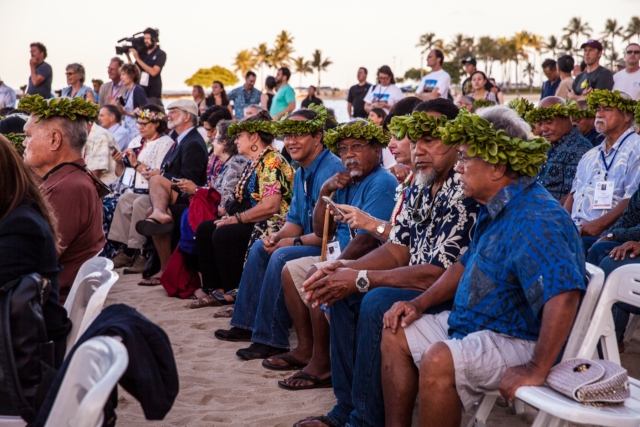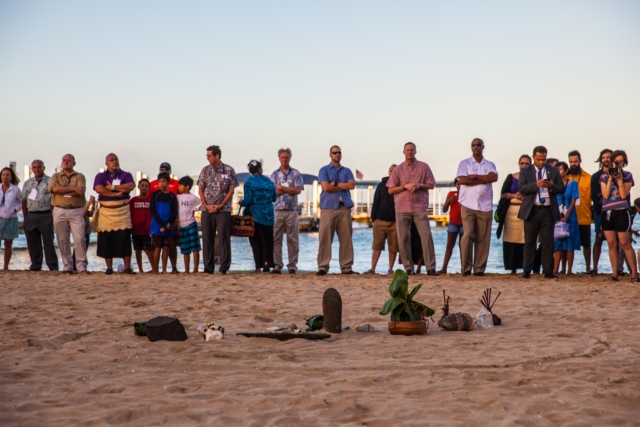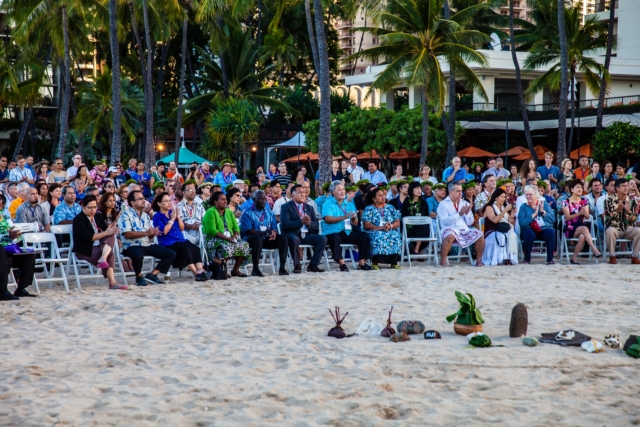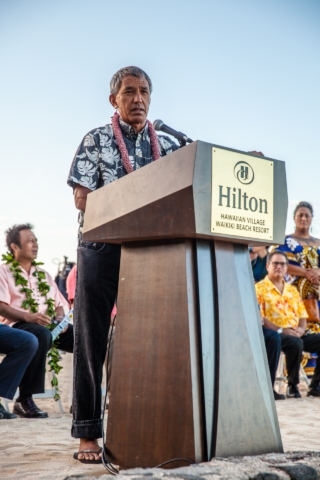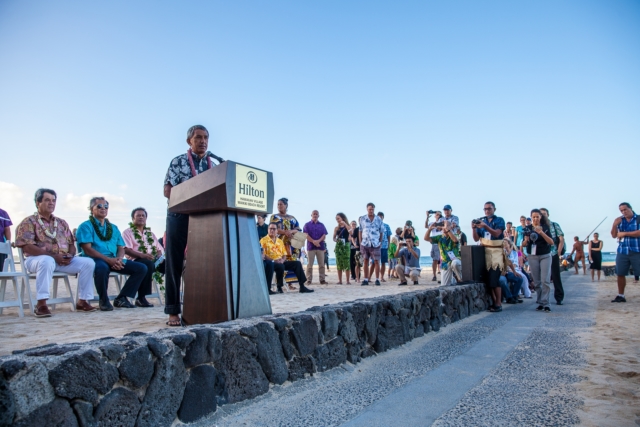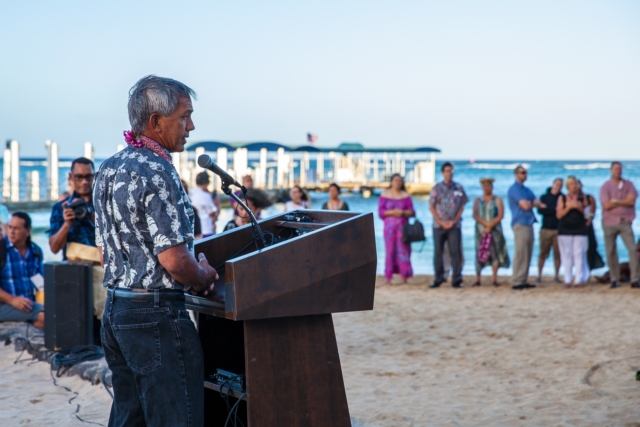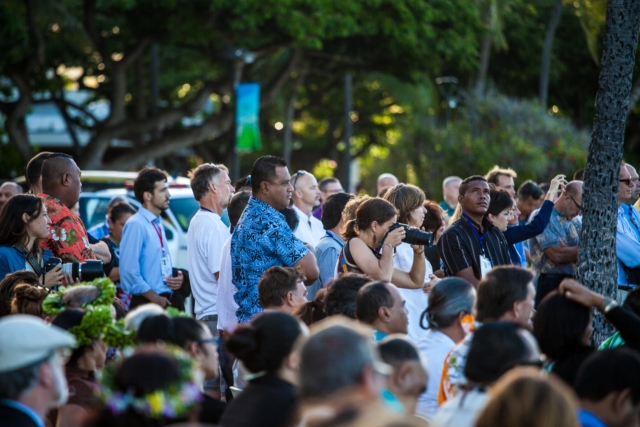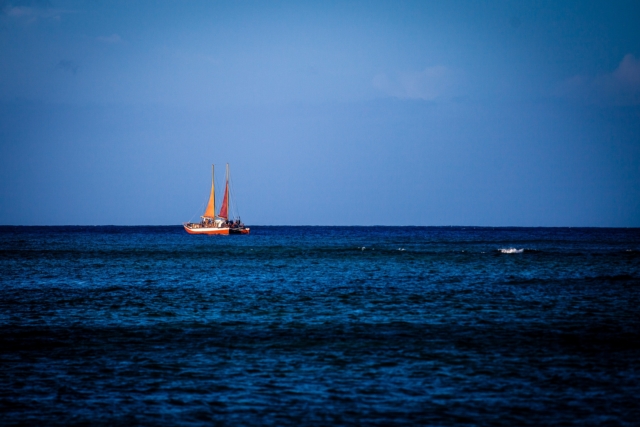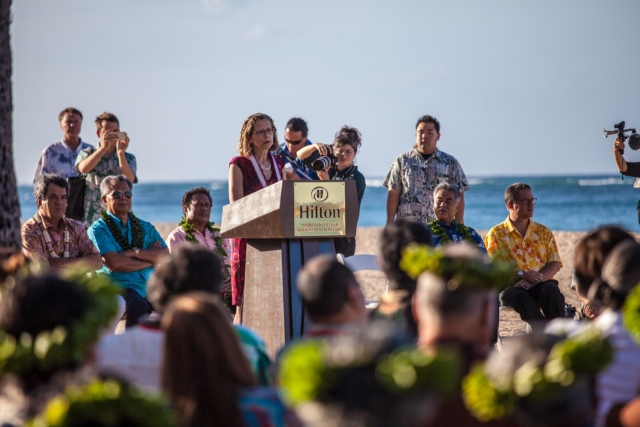
Worldwide Voyage | Voices of the Pacific
- Posted on 9 Sep 2016
- In Environment, Newsletter, Photo Galleries, Teachers, Video Stories
While Hōkūleʻa circumnavigates the world to share and learn about mālama honua, conservationist from near and far gathered in Hawaiʻi to discuss this very concept of caring for our island earth at the World Conservation Congress hosted by the International Union for the Conservation of Nature.

Director-General of IUCN, Inger Andersent explained, “The voyage that is going on right now that Nainoa Thompson and other master navigators are leading is very, very critical to the whole message around conservation, around the imperative of protecting the earth. When you voyage around by the stars bearing witness, engaging communities –how important is that to get the message out that as Nainoa says: ‘The sail plan has to change, we have to draw a new map. And that map has to be one of understanding, one of protection, one of conservation, one of peace, one of non-conflict and one of brother and sisterhood.’ That’s the story of the voyagers and that’s very much the story of the IUCN Conservation Congress as well.”

Prior to the official opening ceremony, dignitaries from across the Pacific gathered for the Moana Pasifika Vaka Arrival ceremony where our Pacific cousins presented a piece of their home to the people of Hawaiʻi.

“This morning we had a wonderful, wonderful ceremony, we had Governor Ige and the people of Hawaiʻi welcoming our pacific leaders with one vaka coming into land, with the Pacific islanders asking for permission to come here and with Hawaiian traditional culture and traditional ceremony granting permission,” said Andersen. “Why does this matter? It matters because at IUCN the International Union for the Conservation of Nature we are bringing the World Congress, the IUCN World Congress to Hawaiʻi, to bear witness and to take action on environmental issue, and the oceans are critical.”

Nainoa Thompson, President of the Polynesian Voyaging Society said, “What you are seeing here in the sands of Hawaii is the change in conversation. No longer can the power of conservation just talk to itself, it has to marry with indigenous knowledge, with indigenous people. So the reason why it’s so important that the Pacific leaders are here, is because if you want to protect the earth, if you want to protect biodiversity, if you want to protect wildlife, if you want to kind of have some way to adapt to climate change, you got to protect the ocean, it’s prerequisite to all of those things. You can’t do it without protecting the oceans, who better to do that than Pacific Islanders cause they know. They know their ancestry, they know their genealogy, they know their history and tenure and they see change, they know something is terribly wrong and they have such an enormous set of responsibilities of protecting the earth by protecting the oceans around them.”

The conversation continued at the Pacific Ocean Summit, where leaders discussed unique challenges they are facing in their island homes.

Pwo Navigator from Rarotonga, Tua Pittman said, “Rather than just concentrate on what’s happening in Europe and Asia, and all these other countries. We really needed the Pacific Island leaders to come together and talk about the solutions for ourselves, rather than get swallowed up in the bigger picture of IUCN and the conservation congress. So the Pacific Island Summit is all about us and what we are going to do, to make things better for ourselves.

“The people here at IUCN are from all throughout Europe and Asia, the Americas. And for a lot of them they have never experienced a Pacific Island Culture. So, we had to standup for the rest of our people and show them that we do have a culture that’s very powerful, very much entrenched in environmental issues, conservation, the lāhui, all these things we’ve had our ancestors were doing this a long long time ago. But unfortunately over the years we have been overwhelmed by Western culture, but in our day, in the old day, we did have a form of, of conservation and environmental care, ocean care, that we need to go back, re-learn and adapt it to this day and age, and that’s what’s happening now throughout the Pacific. A lot of the pacific island leaders are actually sharing some of the progress that we are making in reconnecting to the old ways,” said Pittman.

“For us as a Pacific people, our take away from this is to hear what the other countries are doing wrong. We take for granted what we have in our environment and then you see what is happening in all these other countries and how they are releasing so much carbon dioxide into the oceans that we live in, they don’t live in it. And so we have to make a noise we have to let them know that we do have a concern because if we don’t show a concern and put our hands up or move as one united people, they are never going to hear about us at all, and our islands will just disappear as they are already. So, this is a beautiful thing for Hawaiʻi, beautiful thing for the Pacific that we are able to have the IUCN Congress here. You know it’s the first time it has been held in the United States and they brought it here,” said Pittman.
Help fund the Voyage as we sail the East Coast
Hōkūle‘a’s visit to the eastern United States is a historic milestone in her 40 years of voyaging.
Celebrate with us by pledging your support to the Mālama Honua Worldwide Voyage.






